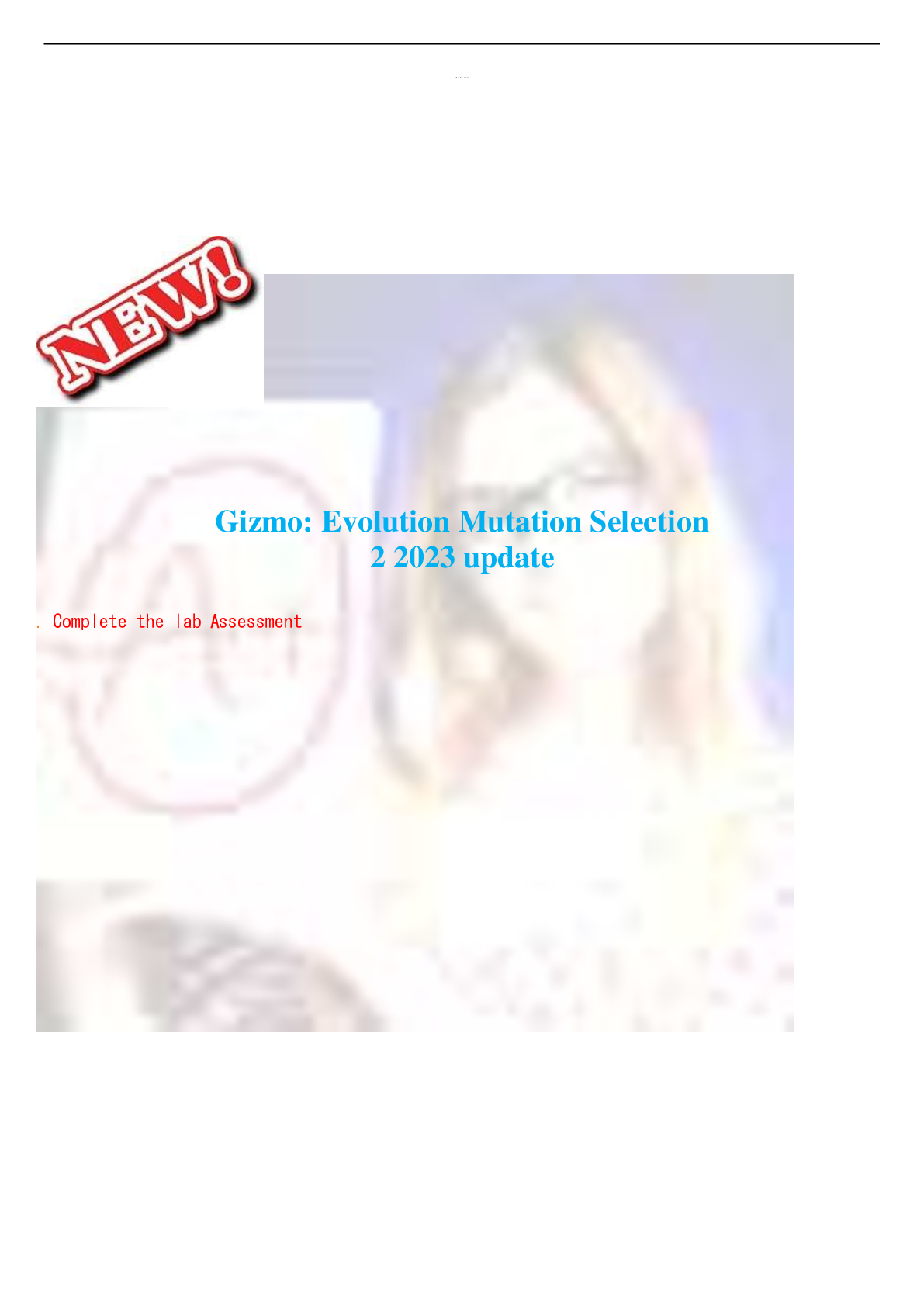Student Exploration: Evolution: Mutation and Selection
Directions: Follow the instructions to go through the simulation. Respond to the questions and prompts in the orange boxes. Complete the lab Assessment
Define Ea
...
Student Exploration: Evolution: Mutation and Selection
Directions: Follow the instructions to go through the simulation. Respond to the questions and prompts in the orange boxes. Complete the lab Assessment
Define Each Vocabulary Word:
adaptation-the biological mechanism by which organisms adjust to new environments or to changes in their current environment
allele-a variant form of a gene
allele sequence-the DNA sequences controlling our traits, are usually found in two copies in eukaryotic genomes chromosome-a structure found inside the nucleus of a cell
evolution- the change in the characteristics of a species over several generations and relies on the process of natural selection
fitness-being able to live long enough to reproduce and keep the population or species alive gene-the basic physical and functional unit of heredity
genotype- the genetic makeup of an organism
mutation-occurs when a DNA gene is damaged or changed in such a way as to alter the genetic message carried by that gene
natural selection-the process through which populations of living organisms adapt and change phenotype trait- the observable physical properties of an organism
Prior Knowledge Questions (Do these BEFORE using the Gizmo.)
1. Imagine a white lizard and a brown lizard sitting on a brown rock. A hawk is circling overhead hunting for its next meal. Which lizard do you think the hawk would most likely try to catch? Explain your choice.
2. Now imagine that the same two lizards were sitting on a dune of white sand. Which lizard do you think the hawk would then most likely try to catch? Why?
Gizmo Warm-up
How long could a parrot survive in Antarctica? It would probably not survive long. Parrots do not have adaptations—or helpful characteristics—to survive icy cold weather. Because of this, a parrot is not fit for Antarctica. Fitness describes how well an organism can survive and reproduce in an environment.
In the Evolution: Mutation and Selection Gizmo, you will see how a species’ fitness can change over time as it becomes better adapted to its environment.
1. On the SIMULATION pane, what is the Average fitness of the population?
2. On the CONTROLS pane, experiment with the Background color sliders.
Activity A: Inherited variation Get the Gizmo ready:
● Set Red to 100, Green to 255, and Blue to 50.
Introduction: An organism’s traits, or characteristics, are controlled by genes. Genes are located on rod-like structures called chromosomes. Different versions of genes that code for the same trait are called alleles. In this Gizmo, there are 3 genes on each chromosome. For each gene there are eight possible alleles: W (white), R (red), G (green), B (blue), C (cyan), M (magenta), Y (yellow), and K (black).
Question: Where does variation in a population come from?
1. Observe: Hold your cursor over one of the insects. The two rod-like structures under Genotype on the right side of the Gizmo represent chromosomes. The three letters next to each chromosome represent alleles.
The alleles carried on an organism’s chromosomes make up the organism’s genotype.
2. Observe: An organism’s alleles combine to produce a trait. The physical expression of that trait is a
phenotype. In the Gizmo, phenotype is expressed in red, green, and blue values.
A. What is the phenotype of the insect? Red: 255 Green
: 255 Blue
: 255
3. Run Gizmo: Move the Sim. speed slider all the way to the left. Click Play ( ). You will see the insects move to the left in pairs. The pairs mate and produce a set of four offspring. As soon as you see at least
one offspring with an oval around it, click Pause ( ). Move your cursor over the circled offspring.
A. What is its genotype and phenotype? Genotype- YW, WW, WW
Phenotype- red: 255, green: 255, blue:
213
[Show More]

